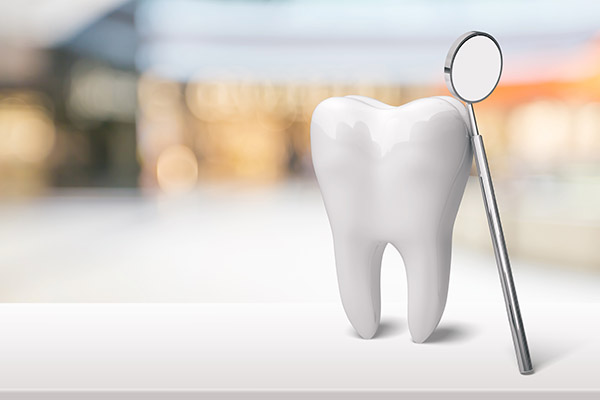Are There Different Types of Toothaches?

Dentists recognize many types of toothaches. Each tooth pain carries a different intensity and meaning, and each type is caused by a different dental issue. You may not know what kind of ache you have right now. Understanding it, and getting in touch with a licensed dentist to alleviate your pain, are important steps in treating your toothache. If you want to know the different types of toothaches and learn more about how you can quickly fix your painful situation, here are the details.
Sensitivity
These toothaches are common. Even so, it does not mean these aches can be less of a priority. Knowing what triggers these pains can help prevent painful attacks. Determining how long the ache lasts is also helpful in pinpointing the cause. Fleeting and minor sensitivity toothaches can be a sign of thinning enamel.
Using an anti-sensitivity toothpaste can help stop the pain. Staying away from cold and hot foods or drinks can help prevent the pain from worsening. Sensitivity pain lasting for more than 30 seconds is a more serious type of problem. Seeing a dentist can determine the true cause of the sensitivity and treat it.
Persistent and dull pain
These toothaches are common as well. The pain may be nerve-racking, but its cause may just be a piece of trapped food between teeth. Dull and persistent dental pain can happen because of teeth grinding or an infected tooth. It can also happen because of stuck food in the gums.
Rinsing, brushing, and flossing can resolve this pain if the cause is lodged food between teeth or gums. Chewing with the teeth on the other side of the mouth can prevent this pain. The dentist can help if the cause is bruxism. A mouthguard can improve the problem. Immediate treatment must happen if the pain is from an abscessed tooth.
Throbbing pain
Excruciating, throbbing toothaches will need an emergency dentist. The dentist can schedule a dental treatment if the problem is not urgent. In the meantime, the patient can follow instructions on how to manage the ache. The patient will need emergency dental care if discoloration, bad taste in the mouth, or bleeding are present with this type of pain.
Sharp pain
Toothaches with stabbing or sharp pain need dental treatment. These tooth pains could mean enamel wear, tooth decay, or tooth fracture. The damage may be causing bacteria and food particles to enter the tooth. Toothaches like this can also come from a detached or loose crown. A dentist can help correct the situation and bring back the patient’s dental health.
Other toothaches
A dental pain not mentioned above will need treatment from a dentist. Describing the type of pain to the dentist can help determine its cause. Managing the pain is possible in the meantime. Proper treatment will target the main source of pain and treat it.
Frequently asked questions about toothaches
Your pain may not be a reliable indicator of how severe the problem is. Consider the FAQs as you determine your next actions.
Can I fix a toothache by myself?
It is not advisable to treat a toothache at home beyond self-care measures of ice and pain medicine before you see a dentist. If there is a piece of food stuck between your teeth causing the toothache, flossing may correct the problem. Other types of pains should be evaluated by a professional.
Will I lose my tooth?
In rare situations in which the tooth has suffered severe decay, extraction may be the best option. In most cases, the problem is easily correctable and fixed within a dental office.
Toothaches come in various intensities, but all of them indicate a problem
Dental pain can indicate either a small or a huge problem, but it can be difficult to determine the cause of your toothache from the pain you are experiencing. A visit to your dentist can determine the cause of this crisis. Together, you and your dentist will create a plan for remedying the tooth pain and develop solutions to prevent recurrence if there are actions you can take at home to boost your oral health.
Seeing toothaches as serious issues can lead to proper management and treatment, and it is important to act quickly when you feel pain in your teeth that does not go away after brushing or flossing. Your dentist can perform an effective treatment capable of ending the pain and restoring the tooth.
Are you considering treating toothaches in the Hackensack area? Get more information at https://www.smilebeautification.com.
Check out what others are saying about our dental services on Yelp: General Dentist in Hackensack, NJ.
Recent Posts
The services of a general dentist, which include examinations, diagnoses, and treatments, are essential to maintaining a patient's oral health. Oral health affects more than just the look and function of your teeth and gums; but also your overall health. Understanding the dentist's function and the services to help keep a healthy mouth is vital.A…
A loose tooth is not something that anyone wants to deal with as an adult. Thankfully, general dentists are trained and equipped to know what to do when a patient experiences a loosened tooth. Adult teeth can become loose as a result of an infection in the oral cavity. More often than not, this is due…
Your experienced general dentist can repair your cavities. Assessing your teeth will come first. Then, the dentist will discuss the treatment options with you. Knowing which option can help you the most can prepare you for the visit. Here are the details about the different cavity treatments that your general dentist can discuss with you.The…
General dentistry includes preventing and treating issues like cavities, which are tiny holes that form on teeth surfaces that have been damaged by the acids made by oral bacteria. Also known as caries, these openings continuously expand until they are treated or cause a total loss of the teeth.Tooth decay is the top reason that…


